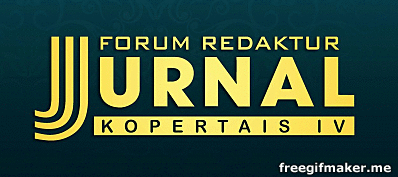ERROR RECOGNITION WITH REASON TEST TO ENHANCE GRAMMAR CAPABILITY OF ENGLISH LANGUAGE PROGRAM STUDENTS IN UNIVERSITAS ISLAM MAJAPAHIT MOJOKERTO

DOI:
https://doi.org/10.36840/ulya.v5i2.249Keywords:
improvement, comprehension, grammar, ERWRTAbstract
This study aims aims to answer the problems on the factors that influence the students in comprehending English grammar and analyzing on the implementation of error recognition with reason test in teaching and learning process can improve English grammar comprehension of students of Educational Study Program of Universitas Islam Majapahit Mojokerto qualitatively and quantitatively. The implementation of ERWRT had improved students’ English grammar comprehending that can be seen through the comparison of the results of pre-treatment which shows that on pre-treatment out of 35 students, there were 11 got the score below 55 as the Passing Grade. Result of column 3 showed that all students got the score above passing grade. The result of C4 Cycle I showed that out of 29 students, only 1 student failed. The result of C4 in cycle II showed that all students succeed. The average of C3 in cycle II escalated from 97.9 to 100. The average of C4 escalated from 77 to 97. In cycle I, there were six grammatical errors. Those were (1) Subject and verb disagreement, (2) using preposition, (3) error in using articles, (4) error in forming passive voice, (5) error in using to be, and (6) using multiple verbs. In non-grammatical errors, there were wrong spelling, wrong diction, and no answer. On cycle II, grammatical and non-grammatical errors still can be found as in cycle I except error in using articles. New errors in cycle II was numbers and noun disagreement. The improvement of grammar comprehension had shown that ERWRT can be used to improve grammar comprehension and writing skills.
Downloads
References
Amran, Y. S. Chaniago. 2002. Kamus Lengkap Bahasa Indonesia. Bandung: Pustaka Setia.
Arifin, Zainal. 2011. Evaluasi Pembelajaran. Bandung: PT Remaja Rosdakarya.
Arikunto, Suharsini dkk. 2006. Penelitian Tindakan Kelas. Jakarta: PT Bumi Aksara.
Arikunto, Suharsini. 2009. Dasar-Dasar Evaluasi Pendidikan. Jakarta: PT Bumi Aksara.
Arikunto, Suharsini. 2010. Dasar-Dasar Evaluasi Pendidikan (Edisi Revisi). Jakarta: PT Bumi Aksara.
Bereiter, Carl. 2002. Education and Mind in the Knowledge Age. England: Routledge.
Biber. Douglas. 1998. Corpus Linguistics, Investigating Language Structure, and Use. New York: Cambridge University Press.
Brown, Douglas H. 2008. Prinsip Pembelajaran dan Pengajaran Bahasa, Pearson Education Inc.
Burn, Ann. 1999. Collaborative Action Research for English Language Teacher. Cambridge. UK: Cambridge University Press.
Chaer. Abdul. 2003. Linguistik Umum. Jakarta: Rineka Cipta.
Cohen, Louis. dkk, 2007. Research Methods in Education. New York. Routledge.
Dastgoshadeh, Adel., Birjandi, Parvis., Jalilzadeh, Kaveh. 2011. Error Recognition Test as A Predictor of EFL Learners’ Writing Ability. Teheran: International Journal of English Linguistics Volume I No. 2
Depdiknas. 2008. Kamus Bahasa Indonesia. Jakarta: Pusat Bahasa.
Djaali dan Pudji Muljono. 2008. Pengukuran dalam Bidang Pendidikan. Jakarta: Grasindo.
Dykes, Barbara. 2007. Grammar for Everyone, Practical Tools For Learning and Teaching Grammar. Victoria: Australian Council for Educational Research Ltd.
Ehrlich, Eugene. 2004. Teori dan Soal Latihan English Grammar. Jakarta: Erlangga.
Elliot. John. 1991. Action Research for Educational Change. Philadelpia: Open University Press.
Feng Shi, Lu., Morozova, Natalia. 2012. Understanding Native Russian Listeners’ Error Word Recognition Test: Model-based Analysis of Phoneme Confusion. New York: Department of Communication and Science and Disorder, Long Island University - USA
Greenbaum, Sidney. 1996. Oxford English Grammar. New York: Oxford University Press.
Hamalik. 2001. Criterion Referenced Evaluation. England: Longman.
Heaton, J. 1990. Classroom Testing. England: Longman.
Hornby, A. S. 1995. Oxford Advanced Learner’s Dictionary. Oxford: Oxford University Press.
Iskandar, 2009. Metodologi Penelitian Pendidikan dan Sosial. Jakarta: Gaung Persada Press.
Iskandarwassid. 2009. Strategi Pembelajaran Bahasa. Bandung: PT Remaja Rosdakarya.
Monny, Maria O. E. 2011. Hasil Kajian Nilai Kelas E Program Studi Bahasa Inggris Universitas PGRI Kupang – NTT. Kupang. (unpublished)
Muslich, Masnur. 2009. Tata Bentuk Bahasa Indonesia: Kajian ke Arah Tatabahasa Deskriptif. Jakarta: Bumi Aksara
Nana Syaodih Sukmadinata.1997. Pengembangan Kurikulum: Teori dan Praktik. Bandung: Remaja Rosdakarya.
Nelson, G. 2010. “Description and Prescription” In : Barber, Alex., Staiton, Robert J., editors, Concise Encyclopedia of Philosophy of Language And Linguistics. London: University College London, UK. p. 146-150.
Sharpe, J. Pamela, Ph. D. 2000. How To Prepare For The TOEFL Test 9th Edition. Jakarta: Binapura Aksara.
Siddique, Hira. 2016. Descriptive Grammar vs Prescriptive Grammar. Pakistan: Allabama Iqbal Open University.
Sudaryanto. 1993. Metode dan Aneka Teknik Analisis Bahasa. Jakarta: Indonesian Linguistics Development Project
Sudjiono, A. 2010. Pengantar Evaluasi Pendidikan. Jakarta: Radja Press.
Sudjono, A. 2011. Pengantar Evaluasi Pendidikan. Jakarta: PT Raja Grafindo Persada.
Thobroni, Mustofa. 2011. Belajar dan Pembelajaran: Pengembangan Wacana dan Praktik Pembelajaran dalam Pembangunan Nasional. Jakarta: Ar- Ruzz Media.
Verhaar, J.W.M. 1996. Asas-Asas Linguistik Umum. Yogyakarta: Gadjah Mada University Press.
Yule, George. 2006. The Study of Language. New York: Cambridge University Press.
Downloads
Published
Issue
Section
License
Copyright (c) 2020 Al Ulya : Jurnal Pendidikan Islam

This work is licensed under a Creative Commons Attribution-ShareAlike 4.0 International License.
 pdf Download: 463
pdf Download: 463












